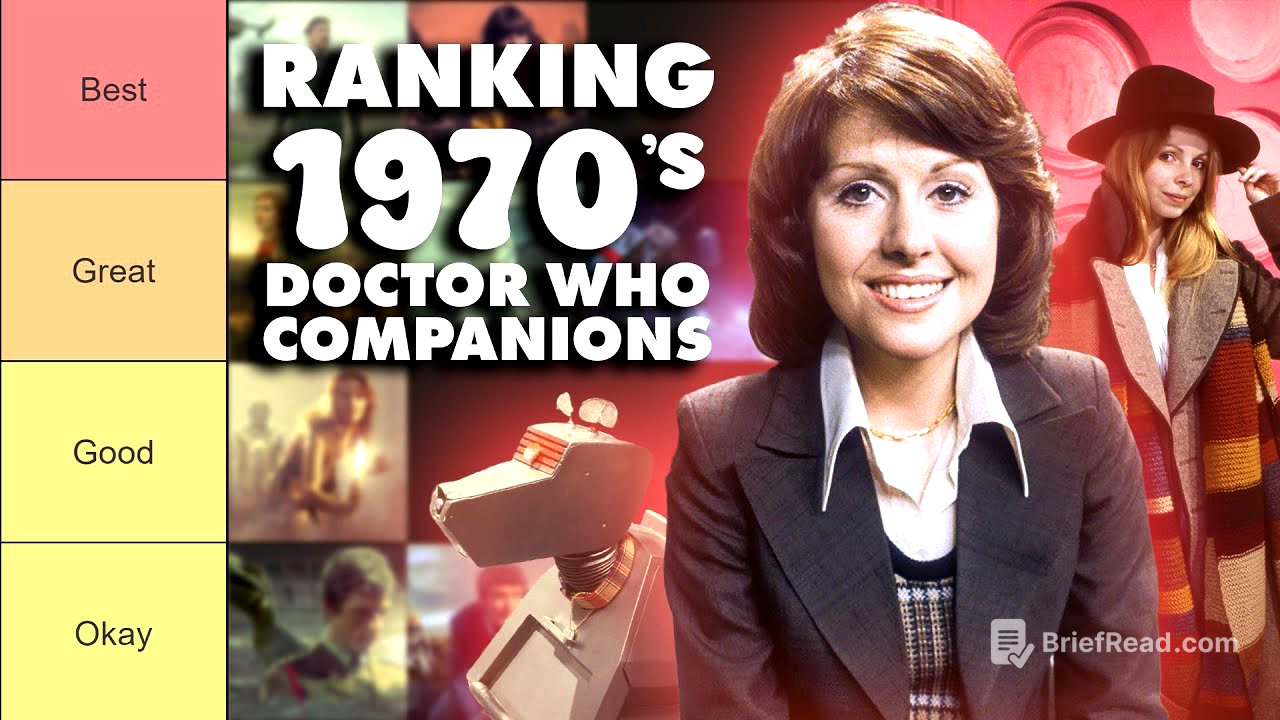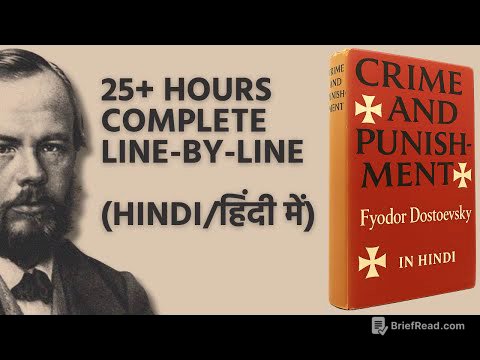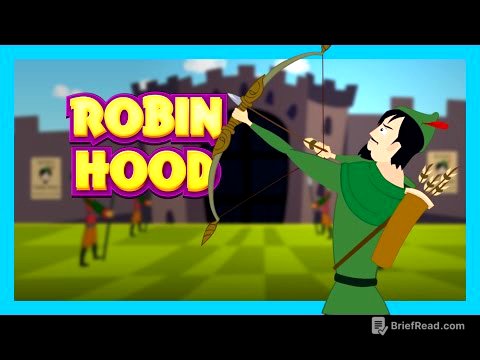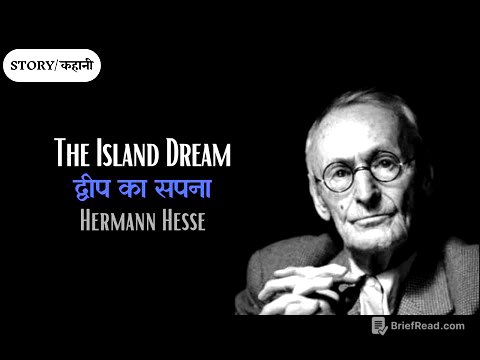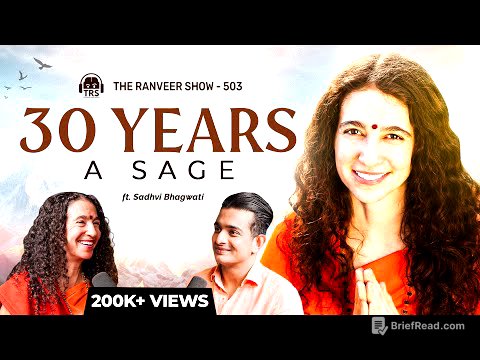TLDR;
In this video, Josh Snares ranks Doctor Who companions from the 1970s, covering the John Pertwee era to the early Tom Baker era. The ranking highlights iconic companions such as the Brigadier, Liz Shaw, Jo Grant, Sarah Jane Smith, and Leela, as well as K9 and the two Romanas. The criteria for ranking include the companion's impact on the show, the actor's performance, and the dynamic between the companion and the Doctor.
- The Brigadier's role significantly changed the concept of a companion.
- Liz Shaw is seen as an equal to the Doctor, fostering great on-screen chemistry.
- Sarah Jane Smith is celebrated as one of the best companions due to Elizabeth Sladen's exceptional performance.
- The shift from contemporary Earth-based companions to characters from different planets and time periods made this era special.
Introduction [0:00]
The video introduces a ranking of Doctor Who companions from the 1970s, specifically focusing on the John Pertwee and early Tom Baker eras. This period is considered a highlight in Doctor Who history due to the long runs of both doctors, which allowed for in-depth character development and strong companion relationships. The 1970s also introduced some of the most iconic companions in the series.
The Brigadier [0:58]
The Brigadier is placed at the top of the ranking due to his significant impact on the show. His character redefined the role of a companion, and his legacy continues to influence the series through his daughter, Kate Stewart, and ongoing references to his character. Nicholas Courtney's portrayal of the Brigadier is highly praised for his suave and likable demeanor. The Brigadier's dynamic with the Doctor, characterized by skepticism and trust, makes him a unique and compelling character.
Liz Shaw [3:17]
Liz Shaw is ranked as "great" because she is portrayed as the Doctor's equal, engaging in intellectual conversations and sharing a strong sense of affection with him. The dynamic between Liz and the Doctor feels balanced, especially at the beginning of her tenure. The lack of a proper departure for Liz is considered a tragic missed opportunity, as it leaves her era without a sense of closure.
Jo Grant [4:30]
Jo Grant is loved for her fun and enthusiastic personality, brought to life by Katie Manning. Although initially written as the opposite of Liz Shaw, Jo's character evolves to form a deep connection with the Doctor. Her final story highlights her love for the Doctor, as she finds a human counterpart with similar traits. Katie Manning was a popular choice to take over Elizabeth Sladen's role in the Sarah Jane Adventures due to her established presence and the sense of love and connection she brought to her character.
Sarah Jane Smith [6:13]
Sarah Jane Smith, played by Elizabeth Sladen, is celebrated as one of the best Doctor Who companions. She starts as a strong, feminist journalist who stands up for her beliefs. Despite her character sometimes being written into a two-dimensional role, Elizabeth Sladen's exceptional performance adds depth and makes Sarah Jane real. Her connection with Tom Baker's Doctor is genuine and heartfelt. Sarah Jane's return in the new series solidifies her status as an incredible powerhouse.
Sergeant Benton and Mike Yates [8:11]
Sergeant Benton is not favored, while Mike Yates is placed in the "okay" category. The interesting aspect of Mike Yates' character is his transformation from a trusted, sweet army guy to someone who turns against Unit.
Harry Sullivan [9:02]
Harry Sullivan is considered "okay" due to a lack of strong connection with his character. His dynamic with Sarah Jane, characterized by his outdated views clashing with her progressive nature, provides comedic drama. Originally intended as an action man, Harry's role became redundant with Tom Baker's casting, making him feel like an odd one out.
Leela [10:21]
Leela is placed in the "good" category, despite being well-loved. The dynamic between the refined Doctor and the "savage" Leela is complex, with concerns about the connotations of the Doctor educating her. The positive aspect of their relationship is the Doctor's attempts to curb Leela's violence. However, the lack of significant character development and her persistent bloodlust keep her from being ranked higher.
K9 [12:06]
K9 is greatly loved as a companion. The concept of a robotic dog in the TARDIS, which could have been a "jump the shark" moment, works due to its quirkiness and humor. Tom Baker's insane acting and John Leeson's vocal performance give K9 a real sense of personality, making him a delightful character.
Romana 1 [13:35]
Romana 1, played by Mary Tamm, holds a special place as the first proper classic series companion. The Doctor's relationship with Romana is unique, as she is a Time Lord on the same level, leading to smarter and funnier dialogue. Romana's presence elevates the show, making it feel more grown up. The Keto Time arc and Mary Tamm's performance are highly praised.
Romana 2 [16:06]
Romana 2, played by Lalla Ward, offers a completely different take on the character. The dynamic between Tom Baker and Lalla Ward is electric, especially with Douglas Adams' writing. Romana embraces the joy of time travel, wearing quirkier outfits and mirroring the Doctor's enthusiasm. Despite real-life relationship issues between the actors, their on-screen chemistry shines, making this era special.
Conclusion [18:04]
The 1970s of Doctor Who is notable for its diverse range of companions, from contemporary Earth-based characters to robot dogs and Time Lords. This mix of companions makes the era special and exciting. The video concludes by inviting viewers to share their own rankings and favorite companions from this era in the comments section. The next video will cover the 1980s Doctor Who companions, including those from the Paul McGann movie.
